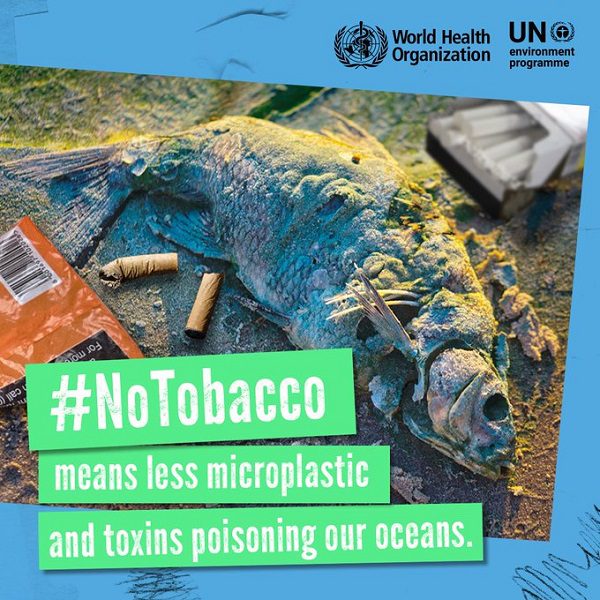World Health Organisation – WHO speaking on World No Tobacco Day, stated that Tobacco is killing the planet. The day is marked on May 31, 2022, to raise awareness among the world population about the aftereffects of smoking.
WHO tweeted, “It’s World No Tobacco Day! Tobacco is killing us & our earth. Not only does Tobacco kill 8 million people every year, but the tobacco industry also leaves a long trail of destruction on our environment long before tobacco & nicotine products are even sold”.
Following the above statement, it further added, “It takes ten years for a cigarette to decompose, allowing further chemical damage to leach into our ecosystem. There is Only One Earth – let’s protect it by saying No Tobacco”.
The international health agency then added that 3.7 litres of water is used to make a single cigarette, whereas 22 billion tonnes of water is used annually in tobacco production globally – that’s approximately the volume of Lake Como in Italy.
“There is only one earth, let’s protect it by saying no to Tobacco“, WHO further added.
Big Tobacco is one of the world’s worst polluters, which causes – deforestation, air pollution, water waste and littered beaches.
“The tobacco industry’s carbon footprint – 84 million tonnes of CO2 emissions contributing to global warming. This is equivalent to one-fifth of the CO2 produced by the commercial airline industry each year”, the international agency then highlighted.
Further providing information, WHO notified that there are more than 7000 chemicals that are released into the environment with the use of a single cigarette and at least 70 are known to cause cancer in humans and animals.
Most of the tobacco is grown in low-and-middle-income countries.
Meanwhile, Dr Ruediger Krech, Director of Health Promotion at WHO, sharing the facts stated, “Tobacco products are the most littered item on the planet, containing over 7000 toxic chemicals, which leech into our environment when discarded. Roughly 4.5 trillion cigarette filters pollute our oceans, rivers, city sidewalks, parks, soil and beaches every year”.

